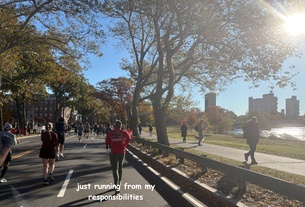Ni Aquí, Ni Allá
Departure From Normalcy
Teresa’s mind is the waiting room of the Venezuelan consulate on a Tuesday afternoon. Each of the four walls is coated in faded eggshell-white-turned-yellow paint, little corners and nooks peeling like dandruff off the great scalp of Bolivarian bureaucracy. The chairs line every flat surface, neatly crammed together. On the side tables, there are three or four copies of Spanish tabloids, pages papery like Latin skin exposed too long to unaccustomed cold and colors faded so they blend more into the walls with every passing day. There is a pressing emptiness about the consulate of Teresa’s mind, a slowness of pace that rivals that of even the most sun-soaked days on the beaches of the island of Margarita. On Tuesday afternoons, there are only ever two or three people in the waiting room at the same time. They are almost always elderly, wilting bodies wrapped in crepe paper button-downs or bird of paradise dresses whose colors fail to soar to the height of those shades from back home. As time passes, marked only by the moving arms of the occupants’ wristwatches, the young attendant manning the desk appears every few minutes, smacking wads of chewing gum or meticulously refilling her lined lips before disappearing again into the consulate’s maze of back offices. She never calls any names. Minutes melt into hours melt into days and the drone of the consulate’s television is never-ending. Not a word leaves the occupant’s parched lips as they sit, shrinking into their starched shirts in a slowly dominating fight between their timeworn memories and the stifling, sluggish heat of mundane red tape restrictions to this one’s citizenship or that one’s papers or whoever’s infinitesimal attempt at belonging.




